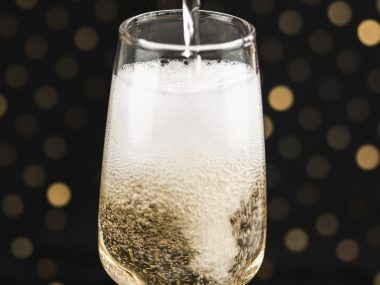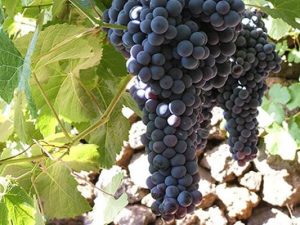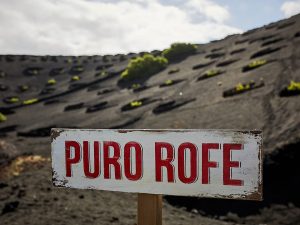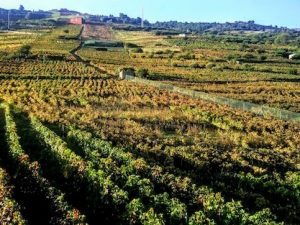The red grape variety Syrah is behind some of the darkest and most full-bodied red wines. However, how much do you know about this particular variety? Here we tell you everything you need to consider when choosing wines from this grape.
Syrah wines have a darker color than Cabernet Sauvignon and high amounts of antioxidants beneficial to health. Of average acidity and amount of tannins, Syrah wines have an aging that can vary from 5 to 9 years, to 12 to 25 years.
What is the taste of Syrah wines?
We know that the aspect of the wines that are elaborated from this grape is quite dark and that in mouth it has a lot of body. But, what can you expect in terms of flavors from this type of wine?
Syrah wines are much softer and have a more present fruit weight than wines made from Cabernet Sauvignon, especially when mixed with Garnacha and Monastrell grapes.
The aromas and flavours in Syrah wines tend towards leather, liquorice, black pepper, black fruit and sometimes burnt tar and rubber when the vintages are not fully ripe. On the contrary, when the harvests are overripe the classic tastes of dark chocolate, port and candied plums appear.
What are the characteristics of this grape variety?
Born in the vineyards of Hermitage and Côte Rôtie, in the North Rhône, Syrah is a vigorous variety, of medium ripeness, and with a short period of ripeness between veraison and the harvest, as well as a short time for optimum ripeness. Syrah grapes are small and tend to ripen quickly once the grapes are ripe.
This variety requires special care during pruning to protect it from spring winds. It is also very susceptible to chlorosis, which makes it suitable for soils with a high content of active lime, as well as to mites, botrytis cinerea, and the disease known as Syrah decay, where the leaves become red, inflammation and cracks appear at the grafting point with the sudden death of the vines.
Because Syrah grapes have a very thick skin and a very high concentration of tannins, it is a common practice for winegrowers to cold soak the grapes for days, or even weeks. This cold soaking or prolonged maceration increases the fruity flavor of the wine, while reducing the roughness of the tannins and the herbaceous flavors.
Where is the Syrah variety grown?
Until the end of the 20th century, the Syrah variety was grown mainly in the Rhone Valley and Australia, but with the increase in Australian wine exports, the fashion for Rhone style wines and a certain boredom with Bordeaux wines, Syrah began to gain followers and its cultivation spread.
Today, Syrah is the third most widely planted red variety in France after Merlot and Grenache. It is grown throughout the south and southeast of France, with the Languedoc-Roussillon region being the area of greatest Syrah production. In the North Rhone, Syrah is the queen red variety and the only one authorized for the production of monovarietal wines.
In Spain, Syrah is usually grown in Castilla La Mancha, Aragon, Catalonia, Murcia and Extremadura. Carlos Falcó, owner of Marqués de Griñón, was one of the first Spanish exponents to produce a Syrah wine known as Dominio de Valdepusa (Toledo). Abadía Retuerta, Castell d’Encus (Thalarn) and Finca Sandoval are other excellent examples that produce Syrah wines. Here, in Spain, Syrah wines tend to be sweeter and stronger than in France.
What is the best match for Syrah wines?
Thanks to their impressive flavor and great body, wines from the Syrah grape variety combine very well with the most daring foods, which can include everything from a dish that combines a mixture of herbs, some soft cheese with a strong smell, with a fatty texture and earthy flavors that can absorb the great concentration of tannins, or even a barbecue of spicy meats.






